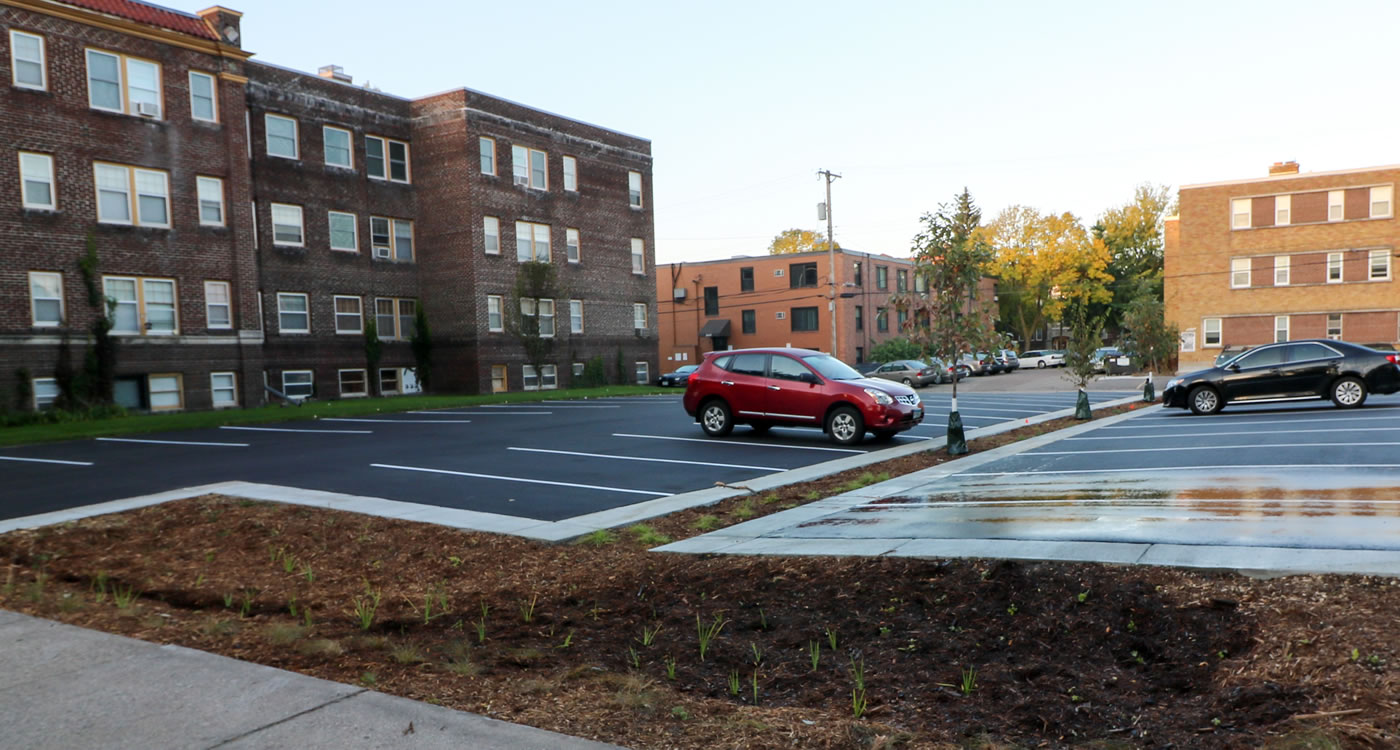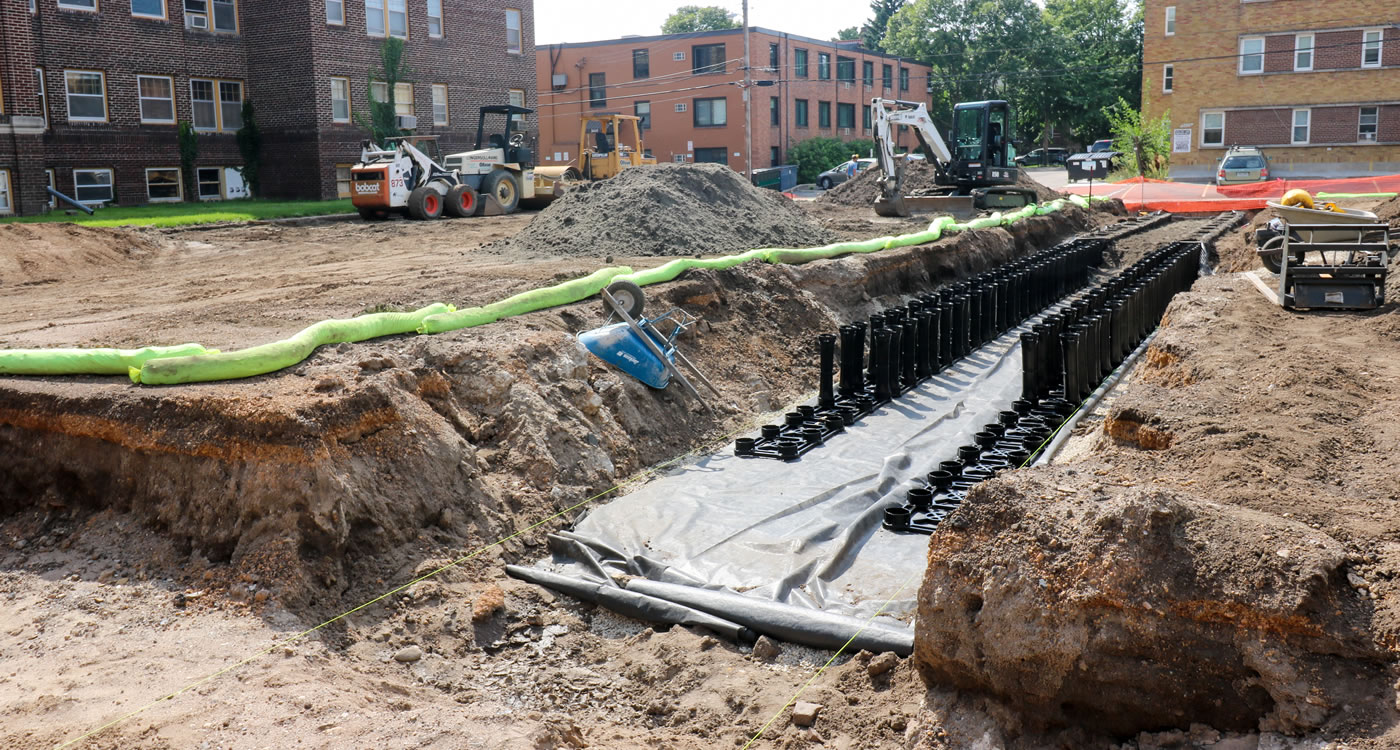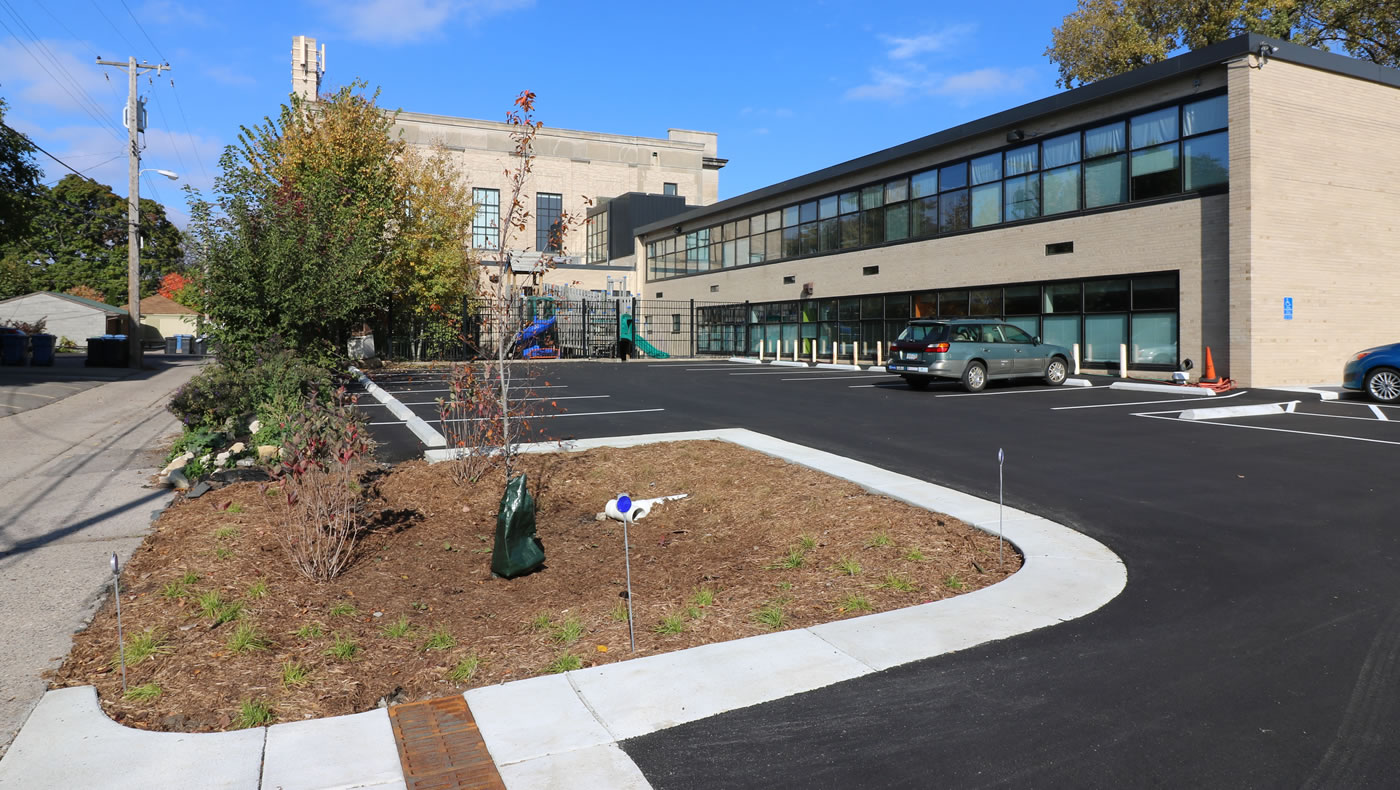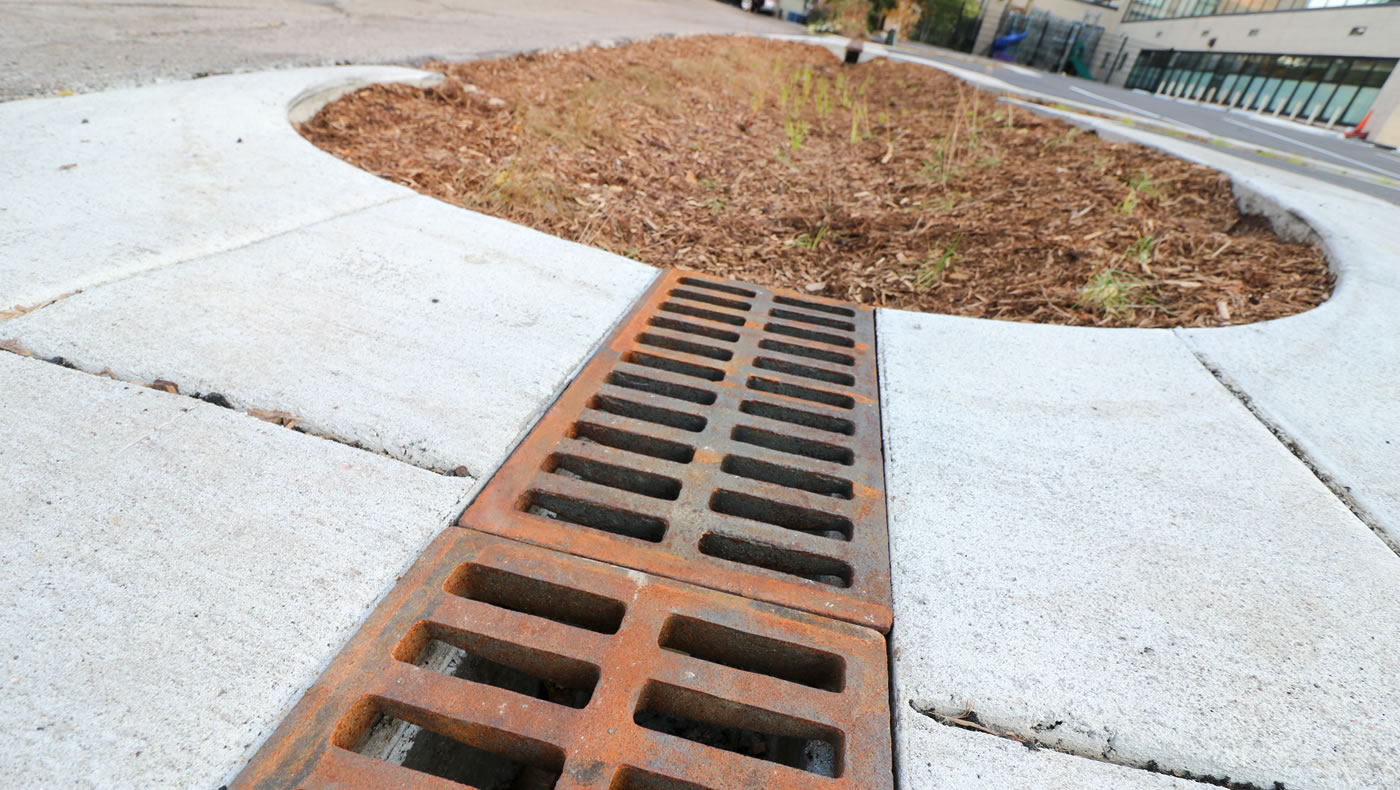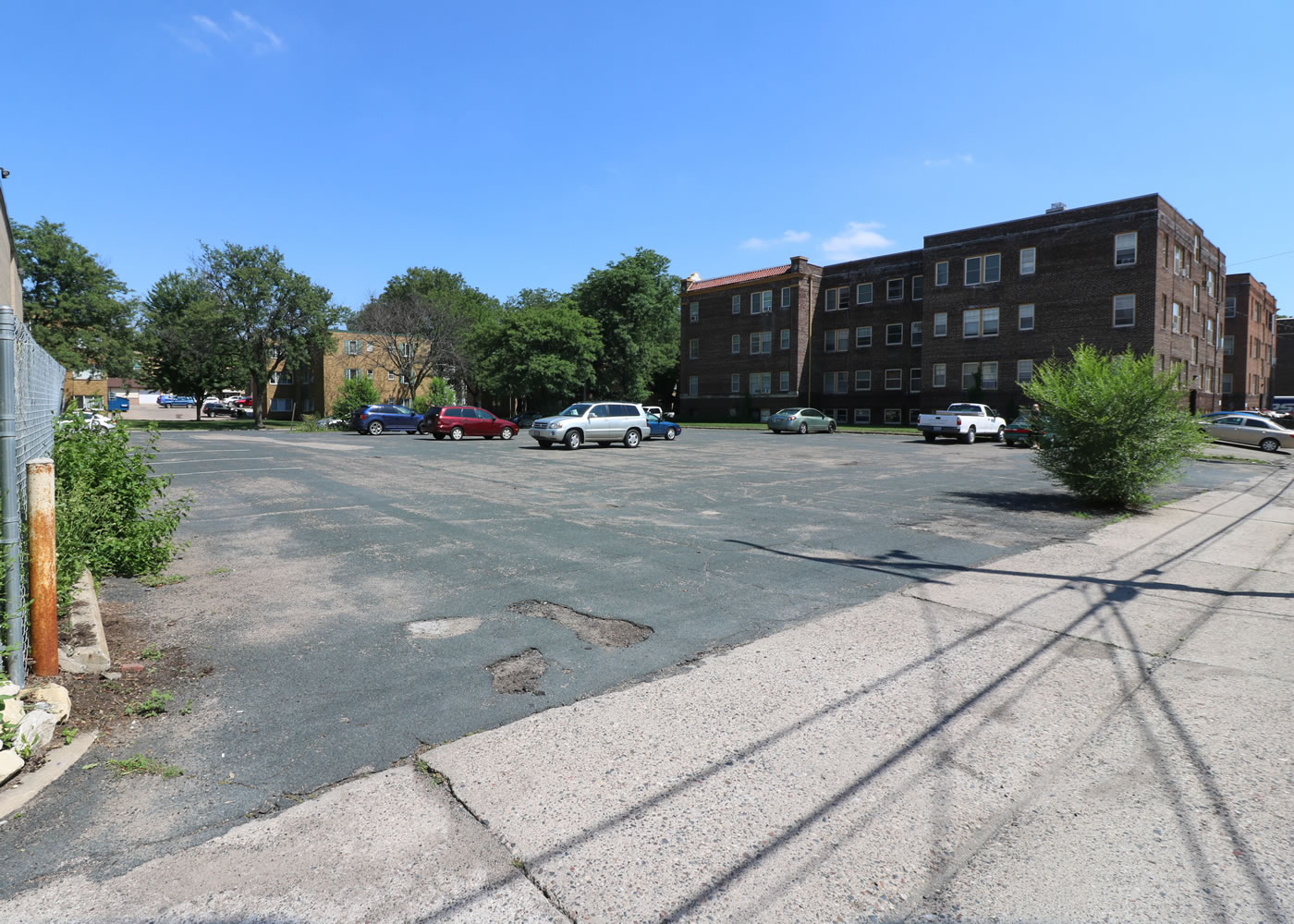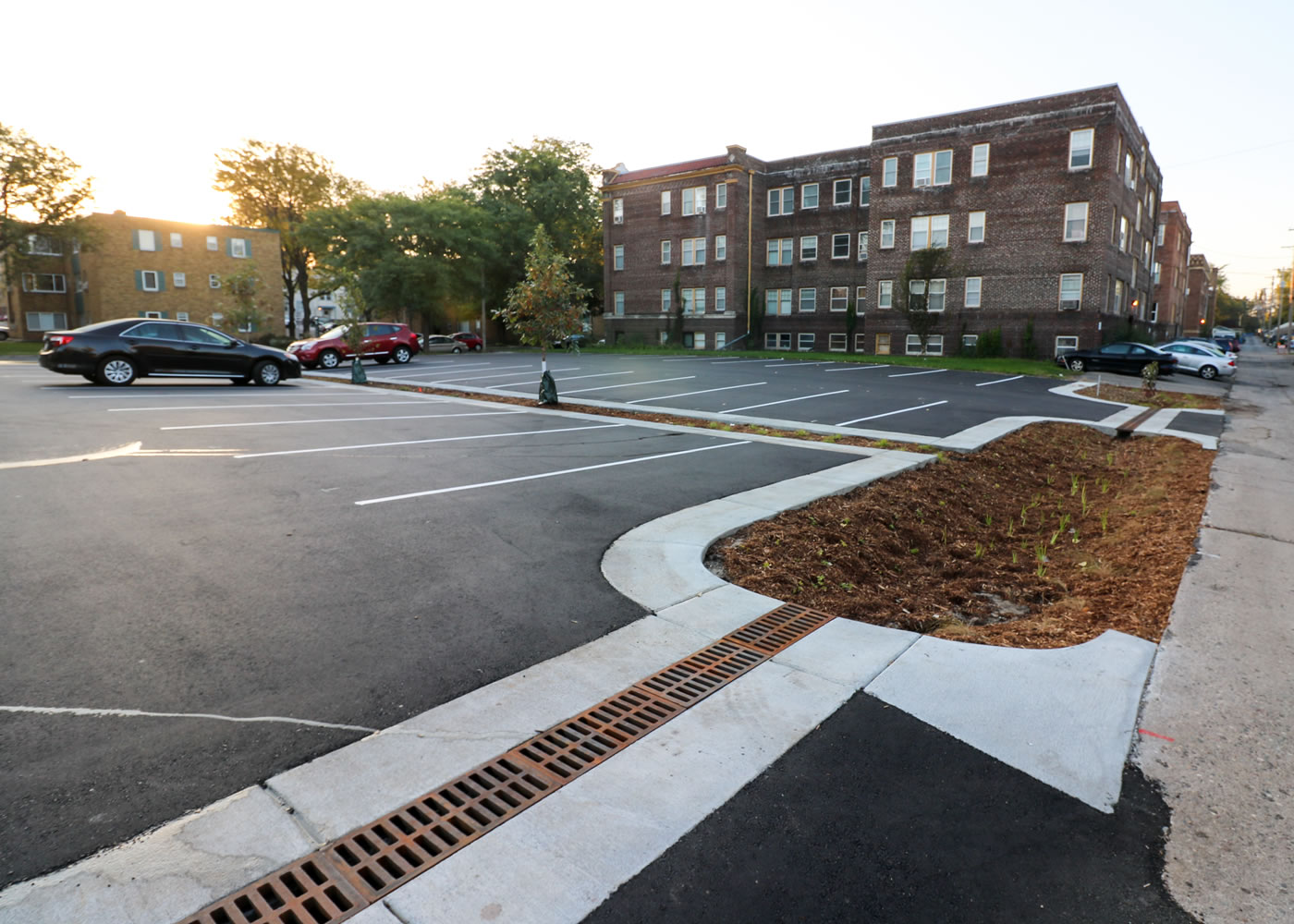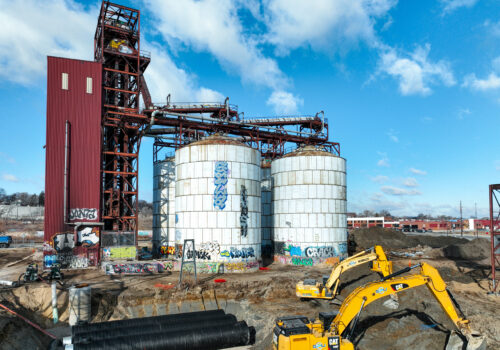News / October 26, 2016
Church’s Values Shine Through in New Eco-Friendly Parking Lot Design

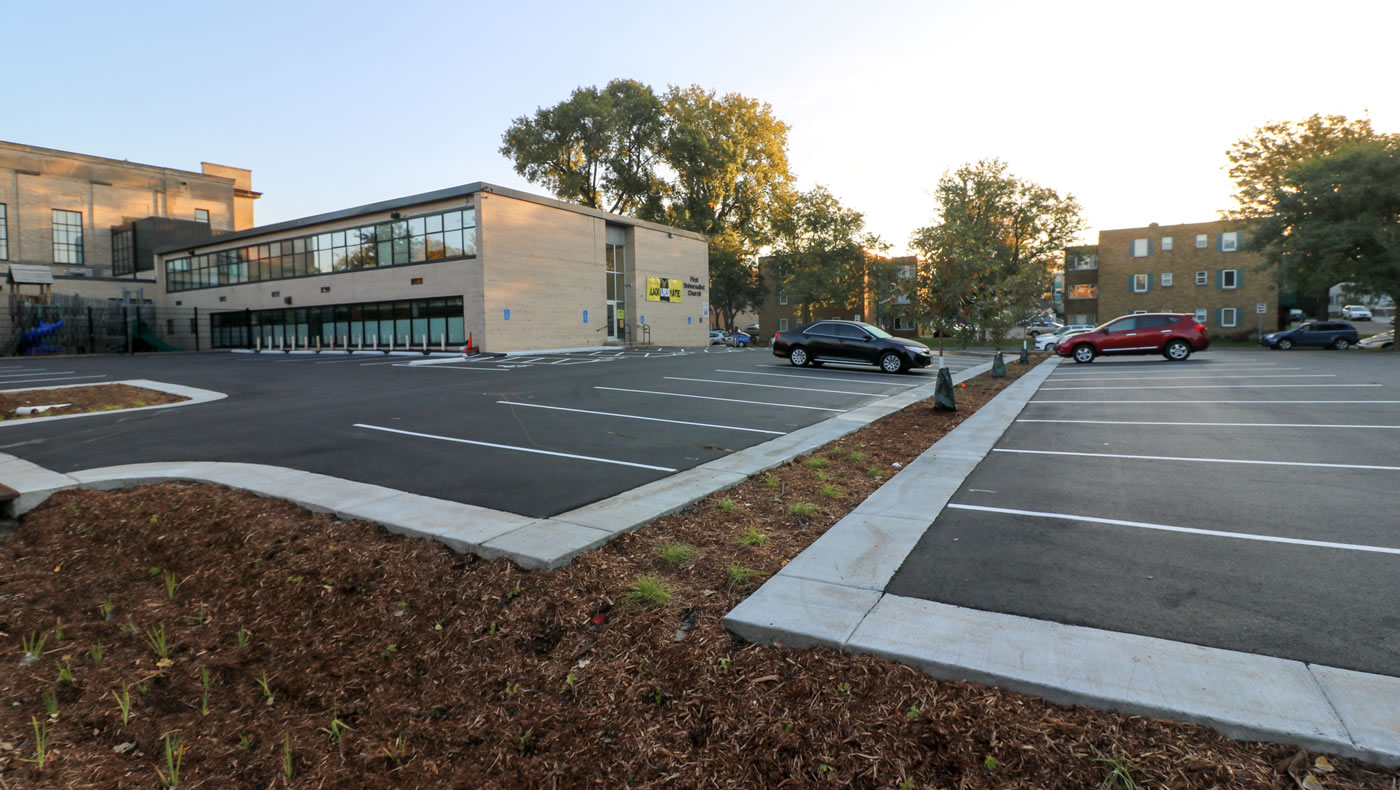
For congregants at First Universalist Church of Minneapolis, being good stewards of the environment is part of their faith. So when the time came to rebuild the church’s crumbling parking lot, they wanted more than just a makeover. They decided to create a sustainable, eco-friendly new landscape that would give something back to the community.
“Environmental values are a strong part of our church,” said Bree Mattson, the church’s operations manager. “We want the values of the whole community to be reflected in everything we do.”
Earlier this month, the church put the finishing touches on its new parking lot, which is ringed with a series of landscape features that capture and treat stormwater runoff. The pavement slopes toward a bioswale and five separate rain gardens designed to absorb rainwater and snow-melt, filtering out pollutants that would otherwise drain to the Mississippi River. Beneath a group of newly planted shade trees, a series of silva cells serve as underground rain gardens, absorbing water, reducing soil compaction and providing ample room for the tree roots to grow.
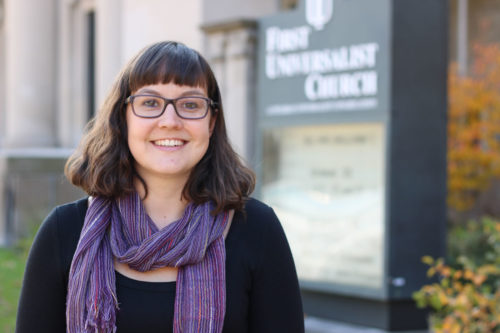
It’s a far cry from the pockmarked, decaying asphalt slab that stood there earlier this year, and a noteworthy achievement for a church that prides itself on being green.
Like many Unitarian churches, First Universalist has a strong environmentalist streak. It’s even certified as a green sanctuary by the Unitarian Universalist Association — a distinction that requires the church to consider the environmental impacts of everything from its energy sources to its choice of cleaning supplies. For the church committee in charge of the building and grounds, it was only natural to look at environmentally friendly options for rebuilding the parking lot.
Unfortunately, doing the right thing doesn’t always come cheap. The total project cost was estimated to be a little more than $180,000. The church found that it had sufficient funds to rebuild the parking lot, but not enough to install the new landscaping.
Hoping grant money might help bridge the funding gap, the landscape designer reached out to local watersheds. The church ultimately applied for and received a $50,000 Action Grant from the MWMO’s Stewardship Fund. Mattson said the MWMO funding allowed them to carry the project over the finish line.
“Without the grant, we couldn’t have done the landscaping. It’s a big difference,” Mattson said.
The church’s new parking lot and landscaping are designed to treat up to 85 percent of rain and snow-melt that falls on the property — including the building’s roof. (An underground drain pipe conveys runoff from the rooftop to one of the rain gardens.) Meanwhile, the trees in the bioswale area will help intercept and absorb rainwater, as well as provide shade for vehicles in the parking lot and increase the lifespan of the asphalt.
First Universalist is also using the project as a learning opportunity for its congregants. During the construction phase, the church posted regular project updates and photos on its Facebook news feed, and also published an article in its newsletter, The Weekly Liberal. Its future plans include installing a pair of interpretive signs that show how the various stormwater BMPs work, and incorporating the BMPs into their annual Earth Day celebration.
“It’s been interesting to see the community’s reaction. Most people wouldn’t have considered that we could have added in these stormwater BMPs,” Mattson said. “We’re very happy that we could do something to help protect our clean water and promote our beliefs at the same time.”
